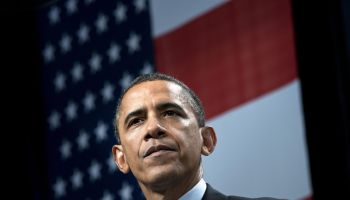I got a call not too long ago. It was from Wells Fargo, the bank that has been sued by one county after another for engaging in predatory lending toward the African American community. My first question to my business manager was “What do they want? I’m probably not going to be interested.” My personal negotiations with Wells Fargo didn’t go very far. I had no interest in being associated with the company that many believe to have ripped billions of dollars in wealth from a community that has such little wealth to begin with. Also, after watching my grandparents lose the home they’d lived in for over 40 years, it was personal for me. I also applaud Tavis Smiley for ending his affiliation with Wells Fargo after the predatory lending allegations surfaced during the financial crisis.
You can imagine my dismay when the NAACP made a deal with Wells Fargo that led to the company immediately becoming the title sponsor of the organization’s national convention this year. I spoke with NAACP President Ben Jealous about the matter, and I was ultimately left unsatisfied with the degree of transparency behind the deal. It’s one thing to say that you’re going into the demon’s house to clean it up, but you must provide proof that you’re not simply entering the house to enjoy the spoils of colluding with the demon. To date, the NAACP has not done an adequate job of describing the nature of its financial deal with Wells Fargo, and the group has also not made it clear exactly how Wells Fargo is going to make up for the billions in losses that have been caused by it within the African American community. Having the most powerful civil rights organization in America as a “partner” effectively releases Wells Fargo from the threat of any significant criticism for their activities in the black community (other than conversations that occur behind closed doors). If this partnership is not clearly defined and empowered, Wells Fargo could hire thugs to rob old ladies in the hood and the NAACP wouldn’t be able to say a thing.
With that said, a former NAACP official whom I respect, Monique Morris, shared a bit of information regarding just how Wells Fargo plans to make things right with black folks. In a recent article, Morris said that “They have been working with us closely with respect to lending practices, access to services and alternatives in communities of color.”
I trust Monique and believe that she has good intentions. I also trust Wells Fargo to do exactly what a capitalist organization is expected to do: Maximize shareholder wealth. To date, I’ve not seen many incentives for Wells Fargo to do the right thing when it comes to minorities and the poor, so until concrete initiatives are released showing that the company has made amends for their past, I won’t be convinced that their relationship with the NAACP is much more than a publicity stunt.
“So, what does this mean to us? It means taking a closer look at how we do business, it means taking a closer look at how we support communities and consider tangible steps to improve our service to those that we entrust with their finances,” said Marvin Clark, Senior Relationship Manager with Wells Fargo. “It means listening to thought leaders like you and hearing the issues that you hear from the people on the street every day and delivering our commitment back to that community.”
I am not sure if Mr. Clark is black, but given that he was a speaker at the Urban League National Conference, I wouldn’t be surprised if he were. Also, job titles like “Senior Relationship Manager” fit with “Community Relations Director” and other titles that translate to “My job was created so I can speak to black people, because the rest of my company cannot.” I was offered a similar position at Syracuse University, and find it interesting that many organizations don’t realize that the creation of offshoot community liaison positions built specifically for African Americans is a by-product of the fact that black men and women are still marginalized in corporate America, academia and many other institutions in our country, as a particular artifact of slavery. Perhaps one day we can evolve to the point where we understand that it’s OK for a black man or black woman with original ideas to have a position that is part of the critical fabric of the institution. That’s what real diversity is all about.
This is not to say that Wells Fargo is a company full of racist human beings or that Mr. Clark is a corporate pawn. It is to say that unfettered capitalism, by its very nature, is built on oppressing the powerless. Given that banks are about as capitalist as you can get, we can never expect that they will deviate from their very reason for being. To expect a bank to do the right thing when it’s not profitable to do so is like trusting a hungry lion to protect a pet rabbit instead of eating it. So thus far, Wells Fargo is reminding us of the old adage that “talk is cheap,” and they are doing a lot of it.










